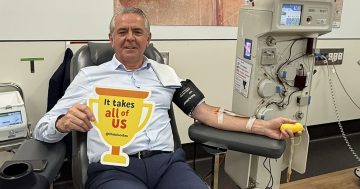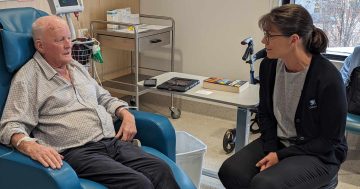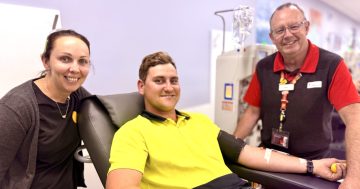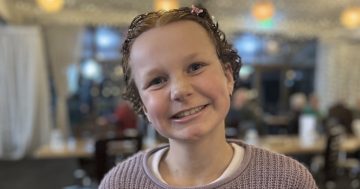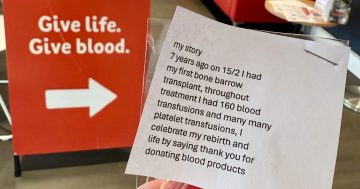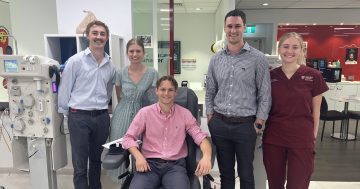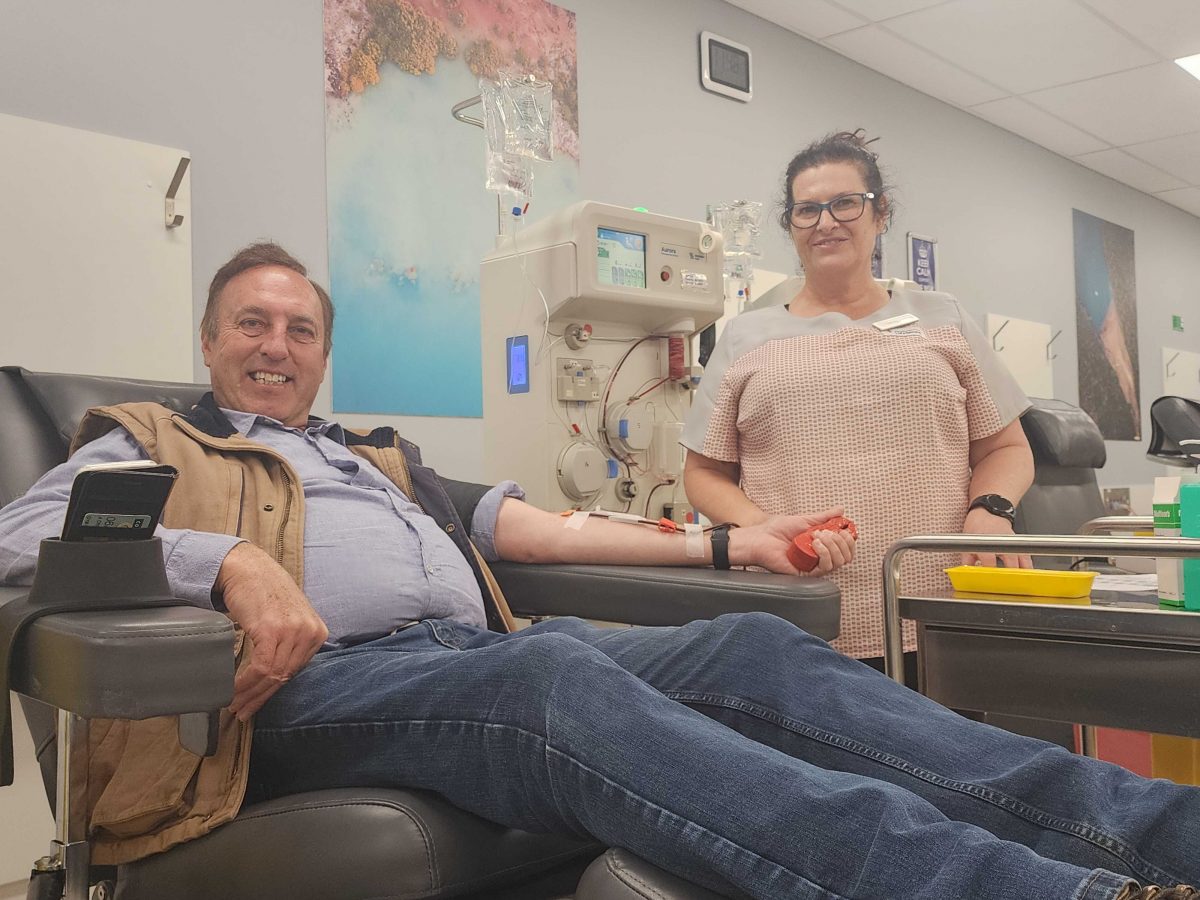
Former police prosecutor Arthur Croft makes his regular donation at Wagga Wagga Donor Centre with nurse Megan O’Rourke. Photo: Jarryd Rowley.
Former police prosecutor Sergeant Arthur Croft is one of 3700 blood donors in Riverina, who in total make around 12,000 lifesaving donations a year.
Born and raised in Sydney, Arthur first donated blood during one of his lunch breaks with his colleagues in 1985.
“We donated at the blood bank centre in Sydney in our uniform,” Arthur said. “We made the donation, had our hot dog and I’ve been a regular whole blood donor since then.”
In 2004, Arthur was invited by Lifeblood to be part of the Anti-D program.
When a mother with Rh(D) negative blood is pregnant with a baby that has Rh(D) positive blood, there’s a risk her immune system will create antibodies that can attack the red blood cells of their next Rh(D) positive baby.
Anti-D immunoglobulin injections can help someone who is 28-32 weeks pregnant from developing these potentially harmful antibodies. Without it, their next Rh(D) positive baby could suffer from the fatal haemolytic disease or be born with birth defects.
“Anti-D was discovered 50 years ago and cannot be manufactured synthetically,” Arthur said. “It has to be produced by people.
“I was invited to the program and shown videos of families and parents who have lost their baby because of that anomaly and I saw the sadness in the parents’ faces.
“When the families can have the babies and you see the joy it brings them, you want to go on the programme … it’s amazing you can bring life and happiness and it doesn’t cost you anything, just a bloody donation.”
Arthur said his plasma gets broken into about 1600 injections every fortnight.
“When I go to the blood bank or every two donations, I save the lives of 1600 babies and bring happiness to the parents,” he said.
“You feel you’re actually bringing life and feel like a god.”
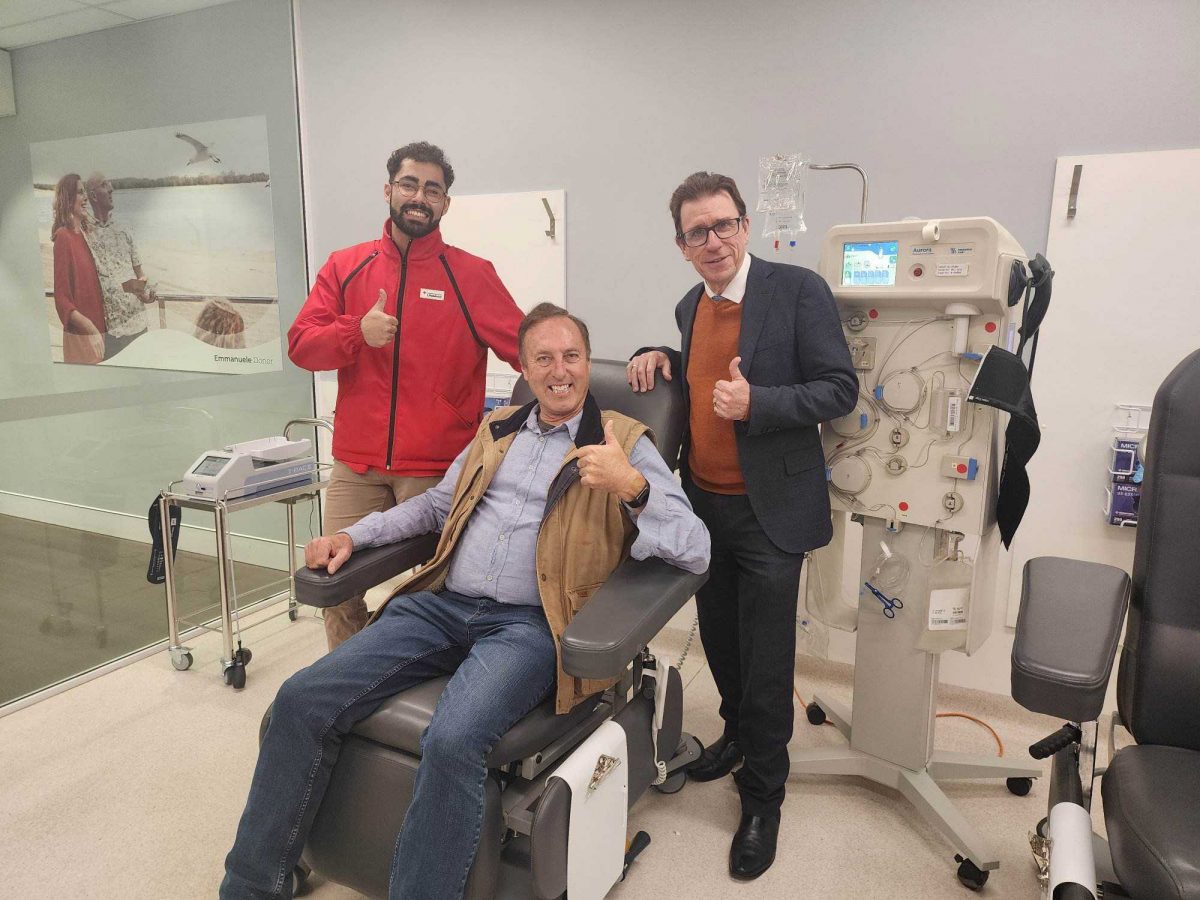
Arthur Croft with Lifeblood representative Mitchell Bryce and Independent Member for Wagga Wagga Dr Joe McGirr. Photo: Jarryd Rowley.
Since 1985, Arthur has given 50 whole blood donations and over 400 plasma donations with Anti-D.
In honour of National Blood Donor Week (12-18 June), the 62-year-old encouraged anyone who is able to donate blood.
“Most people can donate and it doesn’t cost you anything … you can save lives by sitting back relaxing in a chair for an hour,” he said.
“Not many people can save lives and most aren’t aware they can save lives … it could be whole blood or plasma.”
The regular blood donor is keen to continue to his donation for the next 20-plus years until he reaches the age limit restriction.
Australian Red Cross Lifeblood media manager Jemma Falkenmire said Arthur is one of around 100 donors whose plasma is used to prevent a condition in mothers who have a negative blood type.
“There’s no number on that, but it’s 17 per cent of all pregnancies in Australia,” Jemma said.
Lifeblood said three per cent of Australians make life-saving blood donations, but one in three will need it in their lifetime.
The organisation thanked the 500,000 Australians who regularly donate blood to help the thousands of people who need it.
“With an increase in the number of patients needing blood, we’d love to see more donors on their team. And for those who already donate, to give just once more in 2023,” Jemma said.
It only takes an hour to give blood, with most of that time dedicated to answering a few simple questions beforehand and eating and drinking in the refreshment centre afterwards.
To make your donation visit Lifeblood or call 13 14 95.







